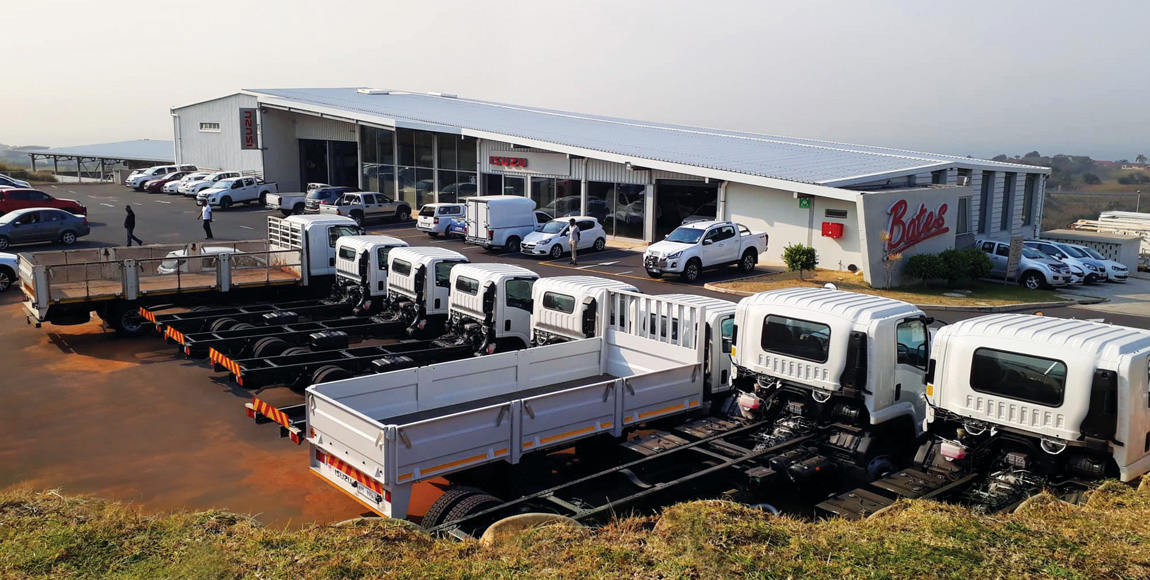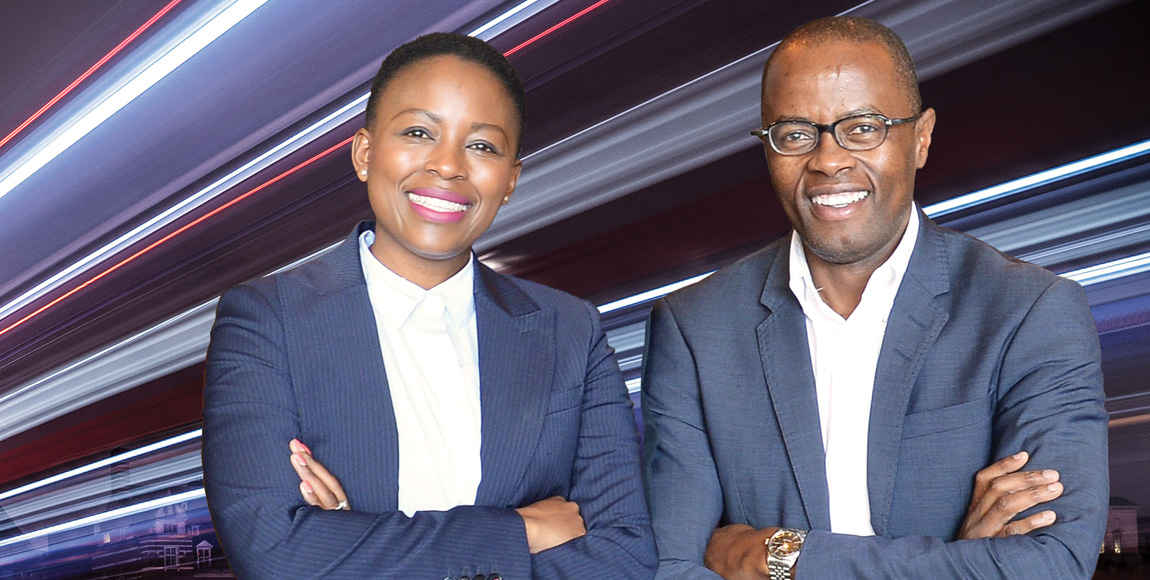Transforming SA’s motor industry

Isuzu’s first, 100 percent black African-owned dealership in South Africa goes from strength to strength
When Sipho and Fortunate Mdanda decided to buy Bates Isuzu Shelley Beach – a well-established commercial vehicle and passenger car dealership on the KwaZulu-Natal South Coast – their plan was to turn the enterprise into the brand’s leading, privately owned dealer outlet in South Africa.
It’s been about six months since they took over – and they are well on their way to achieving their aim, in that time having been rated one of the country’s top-performing dealerships by Isuzu Motors South Africa (IMSAf). “I’m pleased to say that, despite the economic downturn, we have been very, very busy,” says Sipho.
As the first 100 percent, black African-owned business in IMSAf’s dealer network, Bates Motors represents a landmark for the Japanese manufacturer in South Africa and serves as an exemplary model for transformation in the country’s motor industry.
However, acquiring the enterprise wasn’t as easy for the Mdandas as it may sound. First, the business wasn’t for sale. Second, it had been in the Allchin family for three generations, having originally opened its doors in 1937. Third, the couple was required to raise the finance to buy it – a task that presented major challenges.
“While Isuzu played a major role in making the deal possible – helping us with facilitation and approval processes – when it came to funding, many banks that we approached were far less enthusiastic in their support,” says Sipho. “Then we tried ABSA – and what a difference! From the beginning their representatives understood our plans and were progressive in their thinking. They showed foresight and saw in Bates Motors business opportunities others had missed.”
Equally, negotiations with the Allchin family went smoothly. Even though its members originally had no plans to sell the dealership, they knew the Mdandas through business dealings they had had with another of the couple’s companies – Durban-based trailer and vehicle body manufacturer Kholeka Engineering – and were convinced by the proposal.
Given the initial hold-up regarding finance, however, the sale took almost a year to complete, with ownership of the dealership passing to the Mdanda’s holding company, Isipho Capital, in August last year. “We were extremely excited to be a part of a benchmark deal – and what it meant for future growth of the dealership,” says former Isuzu Bates dealer principal Noel Allchin who, as part of the agreement, stayed on in an advisory capacity for a transitional period.
“Almost immediately we began to experience the value-added advantages of the new ownership model. Both Sipho and Fortunate have a remarkable amount of energy and display a genuine desire to succeed in the industry. Each has extensive knowledge of the fleet and bodybuilding business,” he says.

While the 100 percent transformation deal represented a complete buy-out by Isipho Capital, the jobs of all staff members at the dealership were assured in compliance with the terms of the transaction. “The handover went smoothly,” says Sipho. “Following the transitional period, Shaun Bartlett, former financial director at Bates Motors, took over Allchin’s role as dealer principal.
“Now he’s in charge of all aspects of operations – and of the 63 staff members employed by the business. While sales figures show that our customer base is expanding, we’ve got plans to grow our volumes even more – including our footprint in government business – and we have already implemented strategies on the aftersales side to reduce vehicle downtime through improvements we’ve made to parts supply and service facilities.
“Since the takeover, dedicated managers have been appointed to run retail, fleet, finance, government, parts and service divisions – and we are looking for a dedicated manager to take charge of customer care.”
In addition to selling and servicing Isuzu’s range of new commercial vehicles, Bates Motors also stocks new, Opel-branded commercials and passenger cars, as well as used trucks. The dealership’s territory covers an area that stretches from Amanzimtoti, just south of Durban, to Kokstad and beyond in the Eastern Cape.
“We have plans to expand our footprint in the fleet management market,” says Sipho. “Both Fortunate and I have wide experience in the field. Organisations that are keen to acquire vehicles with a low cost of ownership and who want to drive BEE procurement are welcome to contact us. As a BEE Level 1 black-owned company, we are there as willing partners,” he says.
In a statement released by IMSAf, following the sale of Bates Isuzu, Allchin described his family’s negotiations with the Mdandas as a positive experience. “Isipho Capital looks for successful businesses where there is a shared synergy. It then enhances these businesses by opening up new markets and customers through its extensive business networks,” the statement quotes him as saying.
Apart from Kholeka Engineering, among the companies owned by Isipho Capital are Smith Capital Equipment, a specialist in truck-mounted cranes, borehole drilling and aerial platforms; Mr Coach, a panel van and truck converter; Anderson and Kerr, a repairer of hydraulic and pneumatic products; and a fleet-maintenance business, Isipho Capital Fleet.
The company is also a collaboration partner to 600 SA, a 50-year-old enterprise, which specialises in lifting and loading equipment for the forestry and waste-management industries.
According to its statement, IMSAf views the Mdanda husband and wife team as being at the forefront of South Africa’s new wave of black industrialists; consolidating their extensive banking and corporate management experience through various organic and acquisitional growth strategies.
Michael Sacke, IMSAf’s CEO, is quoted as saying: “Transformation is a business priority. We all have a responsibility to help uplift and grow our economy. We should always remember that an economy cannot grow by excluding people and that an economy that is not growing cannot integrate all of its citizens in a meaningful way. Transformation will positively impact the long-term sustainability and growth of our business and also that of the dealer network.”
Sacke says for this reason, IMSAf has allocated resources to its Dealer Development Department to help dealers achieve transformation objectives. “Transformation is a moral imperative of our country. Adjacent to this, it should be viewed as a pragmatic growth strategy geared at realising the country’s full potential by bringing more South Africans into the economic mainstream.”
Published by
Focus on Transport
focusmagsa




